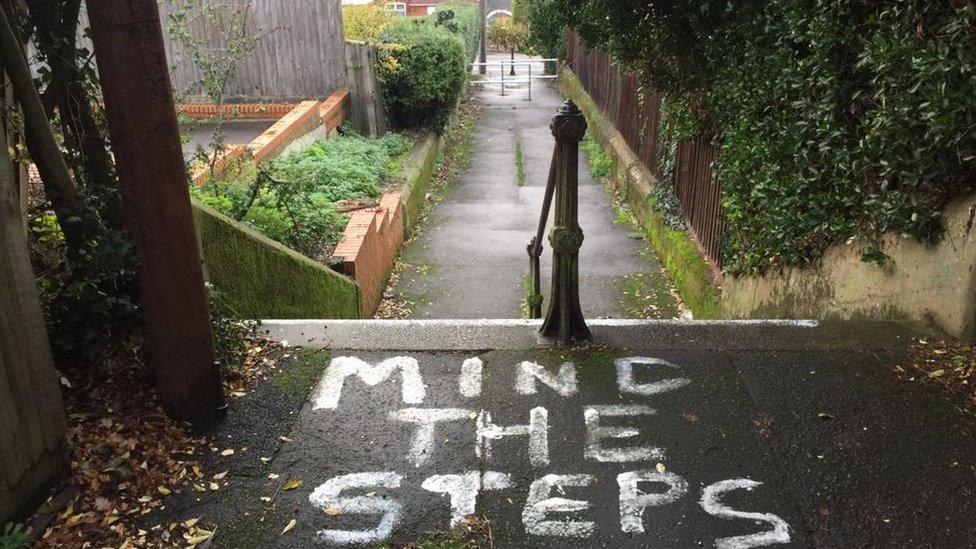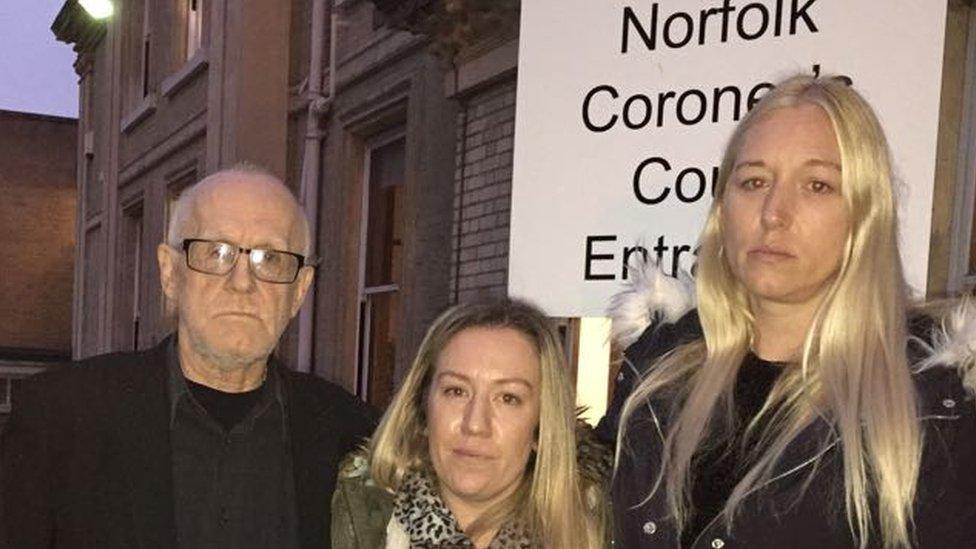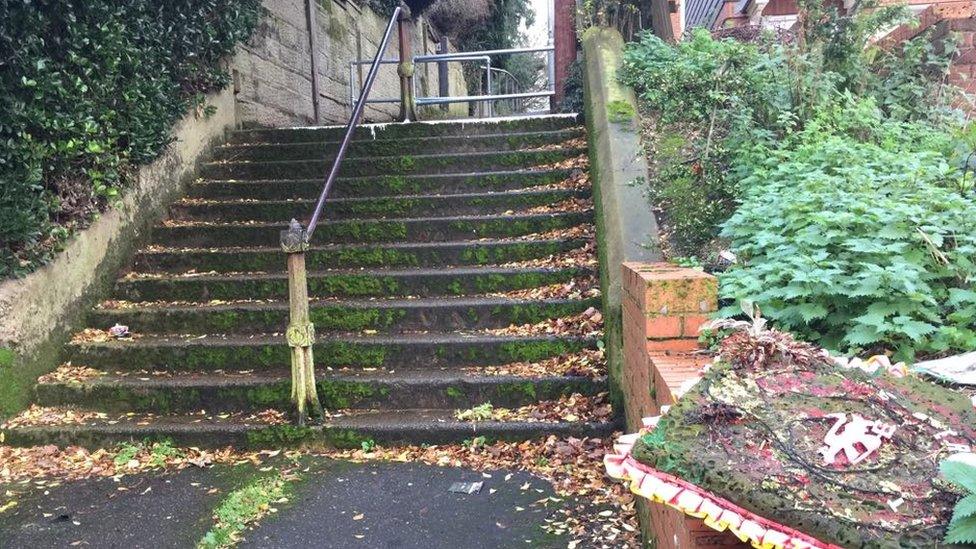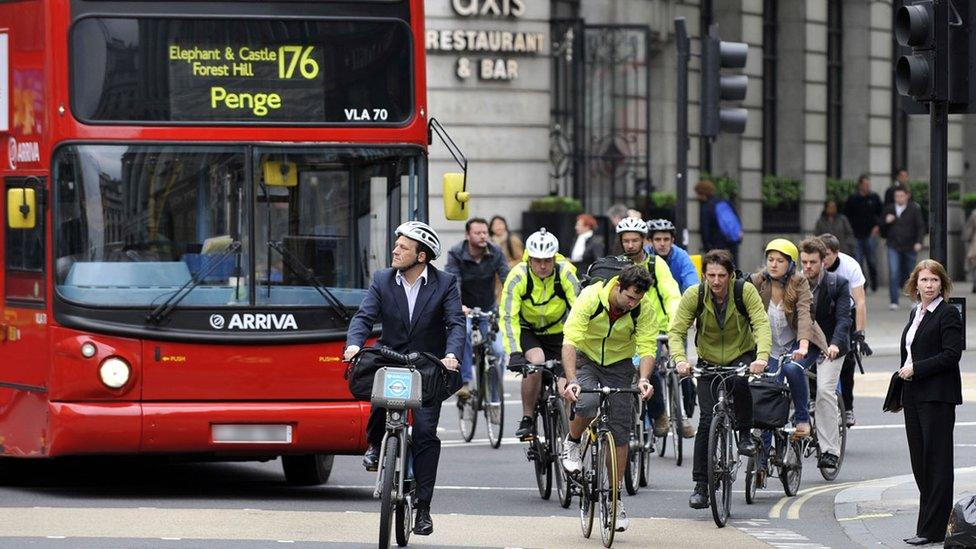Barriers 'would have saved Norwich cyclist's life'
- Published

Warren Dowling died of head injuries after failing to see steep steps while cycling home
The family of a cyclist who died of serious brain injuries after crashing down steep steps claimed he would still be alive if the steps had been visible.
Warren Dowling, 32, was cycling home in Norwich at 00:18 BST on 28 May when he failed to see the steps ahead.
An inquest heard the path was poorly lit, overgrown and that the steps could not be seen before their approach.
Coroner Yvonne Blake concluded a narrative verdict at Norwich Coroner's Court.
She said the medical cause of death was multiple traumatic head injuries, due to after falling down steps while on a bicycle and having consumed alcohol.
Mr Dowling had not been wearing a cycle helmet and was declared dead at the scene by paramedics, having also had a cardiac arrest.
He had a blood alcohol level of 216mg per 100ml. The legal limit for driving is 80mg.

An inquest heard The Loke was poorly lit and its two sets of steps could not be seen from the approach
Since Mr Dowling's death barriers to slow down cyclists have been erected before the steps along The Loke.
His father Patrick Dowling told the inquest his son would not have got on his bike if he was drunk and had never been down the pathway before.
"My son would be alive today if proper measures had been put in place to identify the steps, like the staggered barriers that are there now," he said.

(L-R) Warren Dowling's father Patrick, aunt Amber Dugdale and sister-in-law Dee all attended the hearing
The Loke is a byway for pedestrians but Mr Dorling's father said they had been told by locals that it was used regularly by cyclists.
Representatives from Norwich City and Norfolk County Council were instructed by the coroner to inform her officially whether The Loke had been signposted as a cycleway from Whistlefish Court, a road nearby.
They were also asked to check if another pathway in Mile Cross had similar steps without staggered barriers "to stop anyone from catapulting down there too".
The coroner said councils could not "babysit everyone on a bike or urge them to slow down and wear a helmet", but added it was "not within the bounds of possibility that this could happen again".

Barriers have since been put up before two sets of steps which Mr Dowling fell from while on his bike
- Published22 November 2018

- Published18 October 2018
